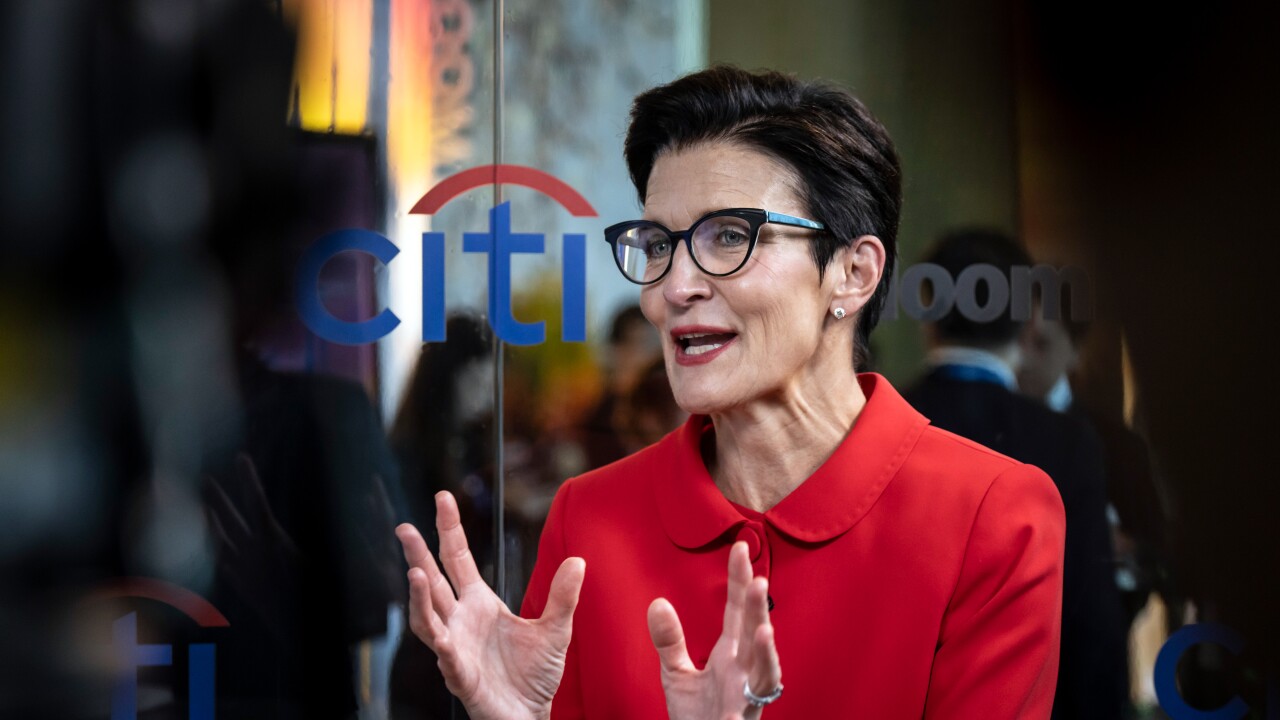Former Wells Fargo CEO John Stumpf will lose an additional $28 million in incentive pay, and his ex-deputy Carrie Tolstedt will have to forfeit stock options worth roughly $47 million, according to a new report by the firm’s board of directors.
The report, a long-awaited autopsy of the cross-selling scandal that badly damaged the San Francisco bank’s reputation, lays considerable blame at the feet of Stumpf and Tolstedt. Meanwhile, current CEO Tim Sloan is portrayed as having had limited direct involvement, prior to his promotion to chief operating officer in November 2015, with the issues that caused the scandal.

Tolstedt, who headed Wells Fargo’s retail banking division before her retirement last year, had previously been forced to forfeit $19 million in unvested equity awards. She declined to be interviewed for the board’s report. Stumpf, who was interviewed, had previously agreed to forfeit unvested equity awards worth approximately $41 million.
It was revealed last fall that Wells employees opened as many as 2 million accounts without customers’ authorization. The bank agreed to pay $190 million in fines at the start of a scandal that led to the ouster of the bank’s CEO and a rash of additional probes.
“Stumpf was by nature an optimistic executive who refused to believe that the sales model was seriously impaired,” the report stated. “His reaction invariably was that a few bad employees were causing issues but that the overwhelming majority of employees were behaving properly. He was too late and too slow to call for inspection of or critical challenge to the basic business model.”
The board’s investigation was announced on Sept. 27, nearly three weeks into a scandal that rapidly became a reputational crisis for the San Francisco bank. It was led by a special committee of independent directors, which worked with the board’s human resources committee and the New York-based law firm Shearman & Sterling LLP.
When the probe was announced, Stephen Sanger, a former General Mills CEO who was then the board’s lead independent director, said in a press release, “We will conduct this investigation with the diligence it deserves — and will follow the facts wherever they lead.”
Less than three weeks after the investigation was announced, Sanger became the chairman of Wells Fargo’s board. He succeeded Stumpf, who stepped down as the firm’s chairman and CEO on Oct. 12.
The special board committee investigating the scandal has been chaired by Sanger. It also included Elizabeth Duke, a former Federal Reserve governor who has been a member of Wells Fargo’s board since 2015; Enrique Hernandez Jr., a board member since 2003; and Donald James, who joined the company’s board in 2009.
In the report released Monday, Shearman & Sterling did not blame Wells Fargo’s board for failing to do more to prevent the scandal.
“What they found is that when we got information, we acted appropriately,” Sanger said during a conference call with reporters Monday.
Before the report’s release, Wells Fargo fired four retail banking executives based on what the probe had uncovered. The firm
Even with the internal investigation concluded, Wells Fargo is likely to be dogged by the phony-accounts scandal for some time.
The bank’s next big scandal-related challenge is likely to come on April 25 at its annual meeting in Ponte Vedra Beach, Fla. At the meeting, shareholders will vote on a proposal that the board commission a separate report that would address numerous issues related to the company’s response to the scandal, including changes in board oversight of risk management processes, evidence that incentive systems are aligned with customers’ best interests, and changes designed to instill a commitment to high ethical standards throughout the company.
The bank’s board has said that it is already addressing those issues and is recommending that shareholders vote against the proposal.
Wells Fargo also remains under investigation by numerous governmental agencies, including the Department of Justice and the Securities and Exchange Commission.





